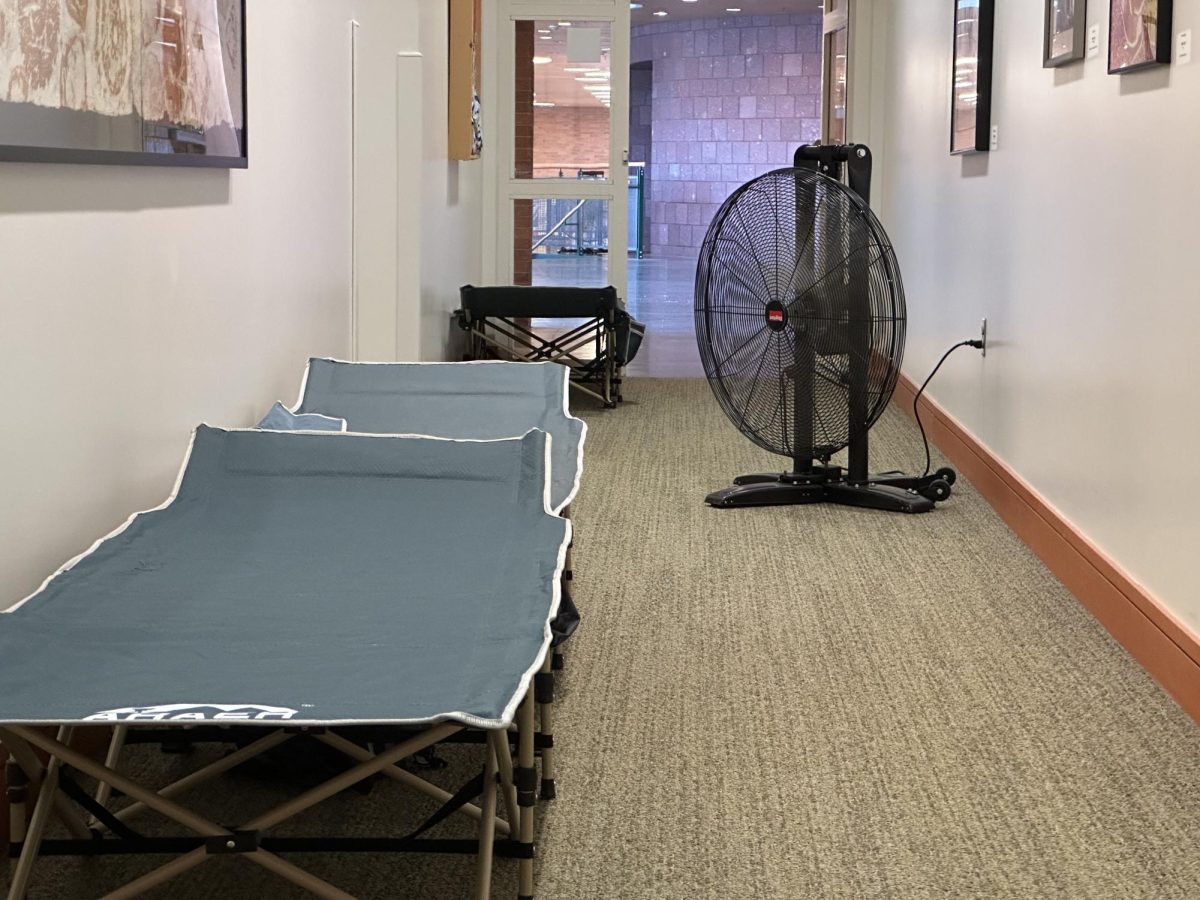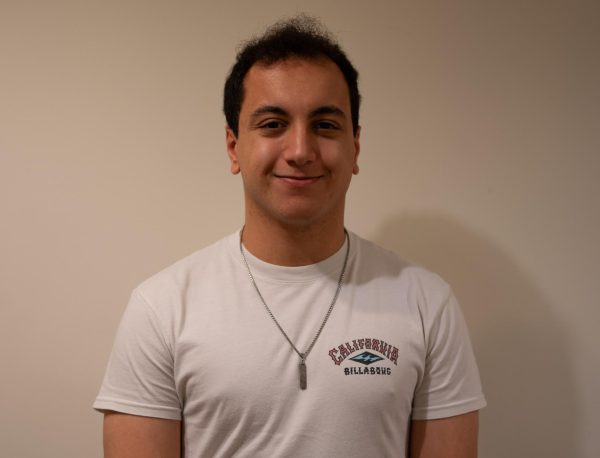For many students, classes couldn’t start soon enough this fall. On Aug. 24, in the midst of a record-breaking heat wave that brought indices of 110 degrees Fahrenheit, classrooms became an air-conditioned escape from unbearably hot dorm rooms. The intense heat, which returned again over Labor Day, left some students questioning the College’s preparedness, as the College scrambles for solutions.
In campus-wide emails from JC Lopez, Ben Newhouse and Dennis Perkins Jr. on Aug. 18, 22 and 23, respectively, students were informed that they could stay overnight in the Joe Rosenfield Center (JRC) and Humanities and Social Studies Center (HSSC). Additionally, air conditioning (AC) units were added to all residence hall lounges, at least 50 fans were distributed to students by residence life and six cots were set up for overnight use in the JRC.
Despite the College’s efforts to alleviate discomfort, some students said that their living conditions were unsafe. Ava Rast `23.5 lives on the third floor of Younker Hall and said that her room was consistently well over 90 degrees on the hottest days, making sleep nearly impossible. Because she was concerned about the safety of her emotional support dog, Rast opted to spend $350 on a hotel room for three nights.
“I’m really frustrated with Grinnell because they knew that this was coming, and they didn’t do anything significant about it,” Rast said.
Dennis Perkins, assistant dean of residence life and student conduct, said that while he agrees that the College should consider more options to combat the heat, some of the existing resources haven’t been utilized by students. For example, only three of the six cots in JRC were used, according to Perkins.
“Everyone thinks the resources are going to be taken, so they may never even try to reach out,” he said. Perkins encouraged students to approach residence life or administration with any requests that would improve their comfort.
At this point, the worst of the summer heat appears to be dwindling, but the broader problem still remains. Currently, only about a third of dorms have AC — Lazier, Kershaw, Rose, Rathje and Norris Halls.
To address this shortcoming, the College initiated a renovation plan that will add AC to all the residence halls, which began with upgrades to Norris Hall completed in 2022. But completing renovations on all of North and South Campus halls will be a slow undertaking. Perkins says that the goal is to complete all the renovations by 2032.
With the planned Renfrow Hall increasing the total housing capacity for fall 2024 and beyond, Perkins says that the College will be able to complete year-long renovations without having students in the buildings during construction. Loose Hall is first on the list, with renovations set to begin immediately after students move out in May. Once Loose is complete, students will move back in and the next hall will be emptied for renovation.
In the interim, Perkins says that Facilities Management intends to install additional AC units in each hall after they determine the electrical circuit’s amperage capacity. Within a couple of weeks, all project houses should also have central air.
For Hunter McDivitt `26, the extended periods of extreme heat that Grinnell has experienced are a reminder that global warming will continue to generate unprecedented weather patterns and climate challenges.
“Everyone always says it gets hot in Iowa, but I don’t think it’s normal for my phone to say that it feels like 110,” McDivitt said. “I think the College should react better in the future, but at the same time, no one can be fully prepared for the unknown effects of climate change because we haven’t experienced them yet.”
In an April 2023 newsletter from the Iowa State University Agriculture Decision Maker, agricultural economist Don Hofstrand wrote that Iowa is approaching 1.5 degrees warmer today than it was in 1988. This warming is most profound in the Midwest compared to any other U.S. region.
“Five out of every 10 years, a five-day heat wave now averages 90 to 95 degrees in central Iowa,” wrote Hofstrand. “By 2050, the average is expected to climb seven degrees to 97 to 102 degrees.”
The U.S. Environmental Protection Agency estimates that roughly 60 years from now, Iowa is expected to see an additional 10 to 20 days per year where temperatures exceed 95 degrees. If this trend continues, crop yields will suffer, livestock productivity may be reduced and summer allergy season will be extended.
While it is difficult to predict which years will be warmer than others, the College is almost certain to experience heat waves more intense than what Iowa has seen this August and September. When that time comes, Rast and McDivitt say that they hope the College is prepared to offer safer alternatives to students.





















































Cassie Kennedy • Sep 11, 2023 at 2:38 pm
Nice article Zach SK. I wonder why they don’t push the calendar to a later start. Asking everyone to arrive to campus just in time for 100 F + heat wave seems silly when other campuses start later. It would be a pragmatic fix that could be instituted well before 2032.